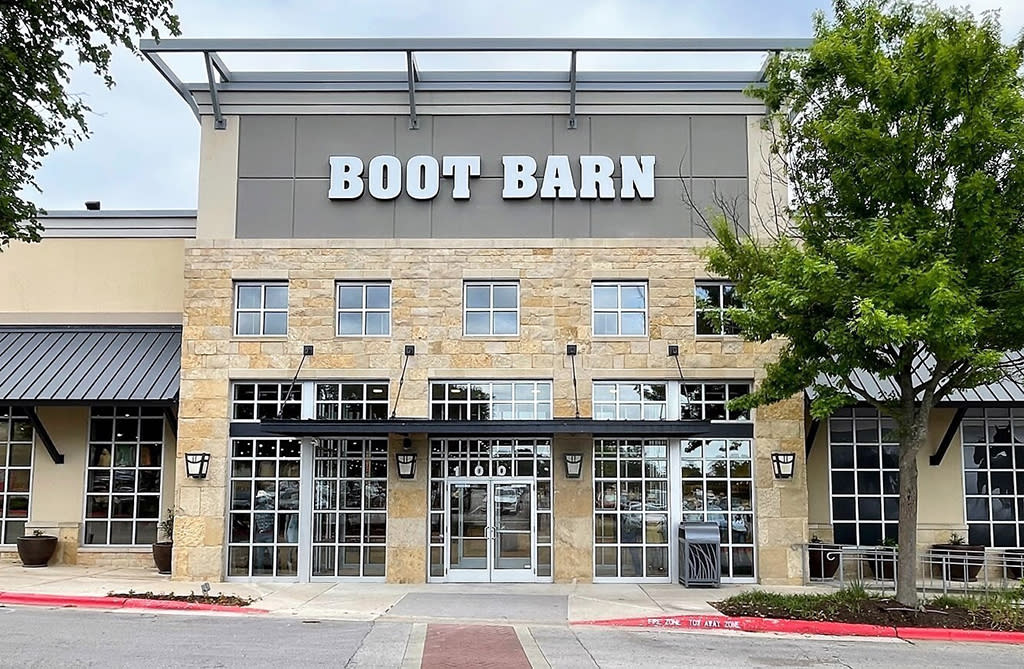Boot Barn CEO Says Highest-Priced Items Are Top-Sellers, Despite Inflation

Boot Barn said it is not seeing consumers trade down to cheaper items or brands, even amid inflation pressures and a general trend of cutting discretionary purchases.
At the Goldman Sachs 30th Annual Global Retailing Conference on Wednesday, the Western boot retailer’s CEO and president Jim Conroy said his “customer is pretty solid” and that the chain has strong momentum heading into the rodeo season in February and March.
More from Footwear News
“The trade-up, trade down part of our equation has bucked conventional wisdom a little bit,” said Conroy. “Some of our best-selling categories are higher price points. And I know that flies in the face of what a lot of other folks are calling out.”
He gave the example of men’s exotic skin cowboy boots, the retailer’s most expensive item in stores, which he said is likely one of the retailer’s “highest growth businesses.”
“We haven’t seen a significant trade down in price point,” he said.
Conroy also noted that a large chunk of the retailer’s business is non-discretionary, which also helps keep sales stable. In addition to the retailer’s large functional work boot and apparel selection, Conroy sees men’s Western boots and apparel as similarly functional and necessary for many working people.
“While some people believe that is something that is discretionary, for most of our core customers, they’re wearing denim and cowboy boots and cowboy hats because they’re working outside, they’re working with horses, they’re working in agriculture, in the oil industry,” Conroy said. “And while we call the product Western, they view it as part of their work uniform.”
Boot Barn is also trying to acquire new buyers outside the purely Western consumer as it looks to reach a “more country casual lifestyle outdoor customer,” Conroy said.
“While that has provided some growth over the last couple of years, we think we’re just getting started in inviting that customer into the Boot Barn brand,” Conroy said.
In the first quarter of fiscal year 2024, Boot Barn reported net sales of $383.7 million, an increase of 4.9 percent over the same time last year, and ahead of the company’s expected sales target between $357 million to $364 million, for a decline of between 2.4 percent and 0.5 percent. Net income was $34.3 million, with diluted earnings per share of $1.13, ahead of expectations outlined by the company that was looking for EPS of between 79 cents and 85 cents. Same store sales grew 2.9 percent and exclusive brand penetration grew to 38 percent in Q1.
At the time, Conroy said the better-than-expected results were due to a “steadily improving retail store” sales trend, which became positive in June and persisted through July.
Boot Barn updated its full-year guidance and now expects to achieve total sales of between $1.715 billion and $1.748 billion in fiscal year 2024, which would represent growth of between 3.5 percent and 5.5 percent over the prior year. Net income is expected to be between $154.2 million and $163.4 million, with net income per diluted share of between $5.05 and $5.35.
In general, the Irvine, Calif.-based company has been lauded by analysts due to its expanding store count, exclusive brands and surge in women’s Western boots. Boot Barn expects to open 52 new stores in fiscal year 2024.
Best of Footwear News
Sign up for FN's Newsletter. For the latest news, follow us on Facebook, Twitter, and Instagram.

